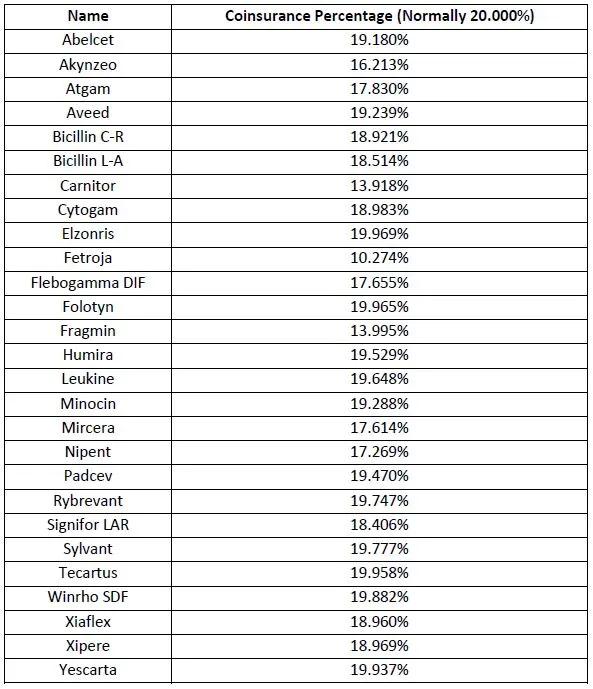- Safety & Recalls
- Regulatory Updates
- Drug Coverage
- COPD
- Cardiovascular
- Obstetrics-Gynecology & Women's Health
- Ophthalmology
- Clinical Pharmacology
- Pediatrics
- Urology
- Pharmacy
- Idiopathic Pulmonary Fibrosis
- Diabetes and Endocrinology
- Allergy, Immunology, and ENT
- Musculoskeletal/Rheumatology
- Respiratory
- Psychiatry and Behavioral Health
- Dermatology
- Oncology
HHS Names 27 Drugs Subject to Medicare Inflation Rebates
Medicare Part B beneficiaries are expected to save between $2 and $390 per average dose starting April 1, 2023.
The Department of Health and Human Services has named the first set of prescription drugs for which coinsurances may be lower for Medicare Part B beneficiaries. Some people with Medicare who take any of the 27 drugs may save between $2 and $390 per average dose starting April 1, 2023. (See Table below for a list of the drugs included.)
The Medicare Part D inflation rebate program, part of the Inflation Reduction Act, applies to single source drugs and biological products. As part of the Inflation Reduction Act that President Joseph R. Biden signed in August 2022, drug companies that increase their prices faster than the rate of inflation will be required to provide a rebate to Medicare. As a result, beneficiary coinsurance will be 20% of the inflation-adjusted payment amount, which will be less than what the beneficiary would pay currently.
Xavier Becerra

“With the inflation rebate program, we are fighting to ensure seniors can afford the treatments they need, taxpayers aren’t subsidizing drug company excess prices, and the Medicare program is strong for millions of beneficiaries now and in the future,” HHS Secretary Xavier Becerra said in a press release.
The federal government intends to invoice drug manufacturers for 2023 and 2024 Part B inflation rebates no later than fall 2025. The rebates will be deposited into the Medicare Trust Fund.
According to a September 2022 report from HHS, 1,216 prescription drugs increased their prices faster than inflation in 2021 of 8.5% for that time period. The average price increase for these drugs was 31.6%. Several drugs increased their list prices by more than $20,000 or by more than 500%.
The HHS report found that the cost of specialty drugs has continued to grow, totaling $301 billion in 2021, an increase of 43% since 2016. Specialty drugs represented 50% of total drug spending in 2021. The top 10% of drugs by price make up fewer than 1% of all prescriptions, but account for 15% of retail spending and 20% to 25% of non-retail spending.

Payers Recognize the Benefits, but Still See Weight Loss Drugs through a Cost Lens
April 12th 2024Jeffrey Casberg, M.S., R.Ph., a senior vice president of clinical pharmacy at IPD Analytics LLC, a drug intelligence firm that advises payers and pharmaceutical companies, talks about how payers are thinking about weight-loss drugs.
Humira Biosimilars Have a Slow Uptake, Finds Samsung Bioepis Report
April 8th 2024Caps on Medicare Part D cost sharing as a result of the Inflation Reduction Act, could reduce members’ financial incentive for switching to a biosimilar, suggests the newest Samsung Bioepis Quarterly Biosimilar Market Report.
